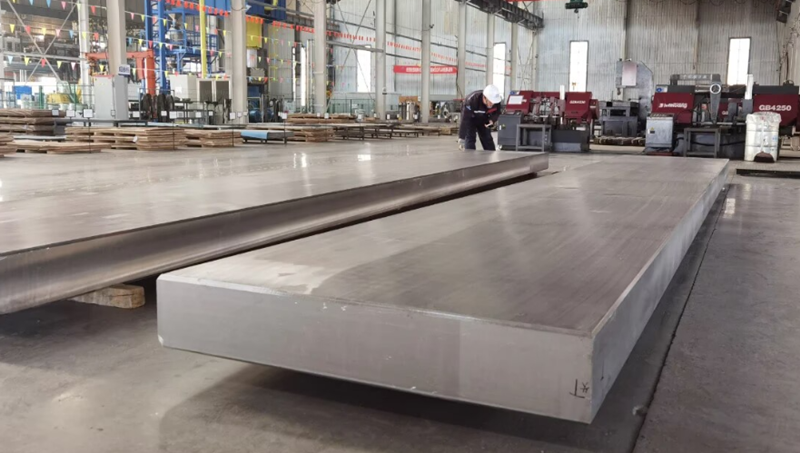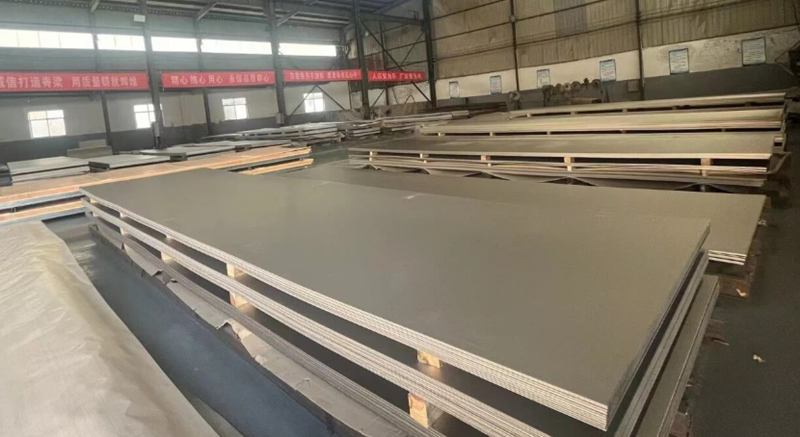What is the surface finish of titanium | Pickled | Polished | Shot Blasted | Anodized
What is the surface difference about Titanium plate ?
Titanium plates can have different surface finishes, depending on the production, processing requirements, and the needs of the application. Below are some common surface finishes for titanium plates:
1. Hot Rolled Surface: Hot rolling is a common method used in the production of titanium plates. Hot-rolled plates typically have a rough surface and require subsequent processing and surface treatment to meet specific requirements.
2. Cold Rolled Surface: Cold rolling involves rolling titanium plates at room temperature to achieve a smoother and more uniform surface. Cold-rolled plates usually have a smoother surface, making them suitable for applications that require high surface quality.
3. Pickled Surface: Pickling is a surface treatment method that removes oxides, dirt, and other undesirable surface materials from titanium plates. This process improves the appearance and corrosion resistance of the titanium plate.
4. Polished Surface: Polishing is a process that involves mechanically or chemically treating the surface of titanium plates to achieve a highly smooth and reflective appearance. Polished surfaces are often used in applications where a refined appearance is essential.
5. Shot Blasted Surface: Shot blasting is a process that involves spraying abrasive particles onto the surface of titanium plates to achieve a uniformly rough texture. This surface is typically used in applications where increased surface friction or wear resistance is required, such as non-slip surfaces.
6. Anodized Surface: Anodizing is a surface treatment method that creates an oxide layer on the surface of titanium plates, enhancing their corrosion resistance and hardness. This treatment is commonly used in specific electronic and chemical applications.
Each surface finish has different characteristics and application areas. The selection of the appropriate surface finish depends on your specific needs, such as appearance, corrosion resistance, friction performance, and assembly requirements.

Common Titanium Plate Grades and Sizes
Grade | Composition | Applications | Thickness | Width | Length |
Grade 1 | Commercially pure titanium | Chemical, marine, food, aerospace | 0.5 mm -- 100 mm | 100 mm -- 2500 mm | 1000 mm -- 6000 mm |
Grade 2 | Commercially pure titanium | Aerospace, industrial, marine | 0.5 mm -- 100 mm | 100 mm -- 2500 mm | 1000 mm -- 6000 mm |
Grade 5 | Ti-6Al-4V | Aerospace, medical, automotive | 1 mm -- 100 mm | 100 mm -- 2500 mm | 1000 mm -- 6000 mm |
Grade 7 | Ti-0.2Pd | Chemical processing | 0.5 mm -- 50 mm | 100 mm -- 2500 mm | 1000 mm -- 6000 mm |
Grade 9 | Ti-3Al-2.5V | Aerospace, medical, sporting | 1 mm -- 50 mm | 100 mm -- 2500 mm | 1000 mm -- 6000 mm |
Grade 23 | Ti-6Al-4V ELI | Medical implants, aerospace | 1 mm -- 50 mm | 100 mm -- 2500 mm | 1000 mm -- 6000 mm |
Grade 12 | Ti-0.3Mo-0.8Ni | Chemical processing, heat exchangers | 1 mm -- 50 mm | 100 mm -- 2500 mm | 1000 mm -- 6000 mm |
